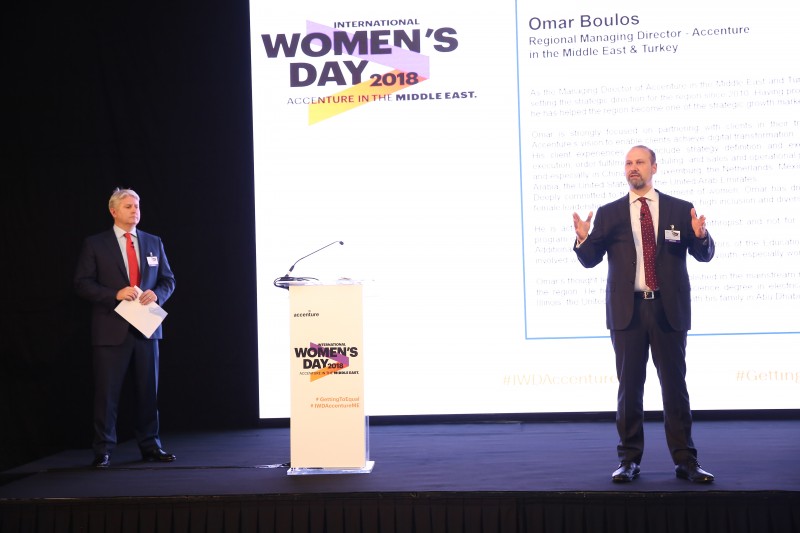New research from Accenture under the company’s “Getting to Equal 2018” report has detailed the most-effective actions that business leaders can take to accelerate advancement and help close the gender pay gap.

The research is based on a survey of more than 22,000 working men and women in 34 countries — including 717 male and female employees in the United Arab Emirates – to measure their perception of factors that contribute to their workplace cultures. The survey was supplemented with in-depth interviews and a detailed analysis of published data on a range of workforce issues.
“Our research has found that companies that exhibit positive workplace cultures, policies and programs support talented employees across the gender spectrum. Helping women, essentially, helps men too,” said Omar Boulos, regional managing director of Accenture in the Middle East and Turkey. “And in a country that has ambitious development plans, supporting talented employees in an inclusive environment will be a critical enabler for the UAE’s sustained success.”
Building on Accenture’s 2017 research, the report highlights how digital fluency and technology can close the gender gap in the workplace, and grouped 14 core factors proven to influence advancement into three categories of bold leadership, comprehensive action and an empowering environment.
The research found that technology that helps employees work remotely has enabled greater career progression for women. Sixty-five percent of “fast track women,” – a group that progresses to manager level within five years of employment, versus 49 percent of all women and 55 percent of men, use technology to attend everyday meetings virtually rather than being there in person. Fast-track women take greater advantage of flexible working overall, with 83 percent working a flexible schedule, compared with 73 percent of all women.
The report also found that while there are a number of social and economic barriers to equality in the workplace, including educational disparities, childcare and domestic responsibilities and cultural biases, an organisation’s culture can hold women back, too. Culture is set from the top, so if women are to rise, gender equality must be a strategic priority for the CEO and leadership team.
Setting an example to the tech industry, Alibaba Group’s Executive Chairman, Jack Ma, has made recruiting women a priority, and said that women are the “secret sauce” behind the rapid growth of the firm. He is a strong proponent of female entrepreneurs and an advocate for small, women-owned businesses. Of the 18 people who founded Alibaba in 1999, six (33 percent) were women; as of last year, approximately 40 percent of its more than 50,000 employees and a third (33 percent) of its executive leadership team were women.





